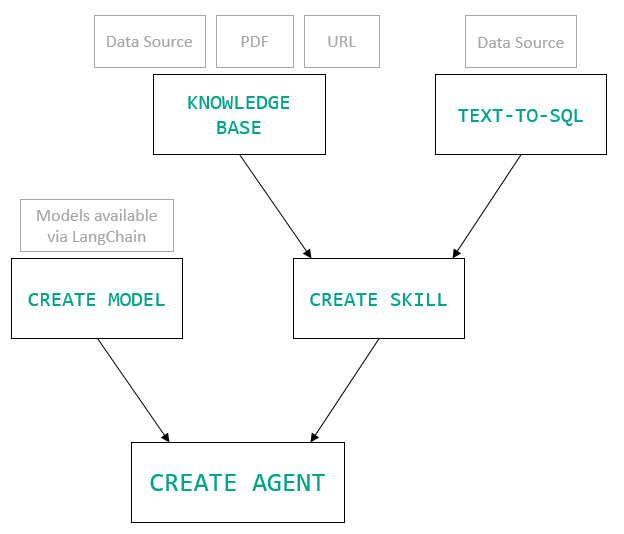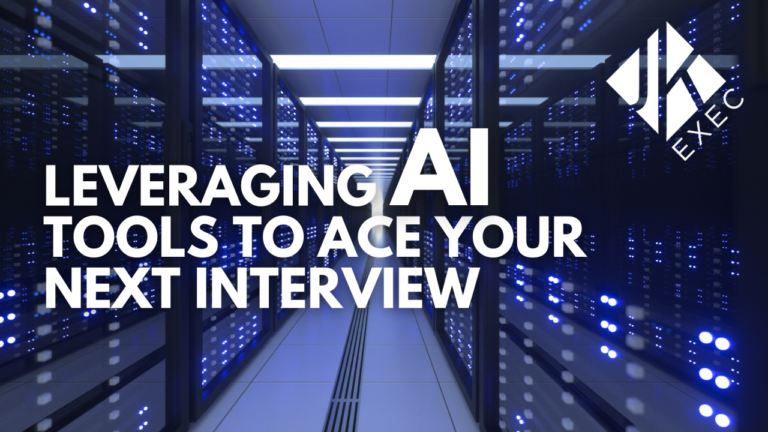Skill for Using Ai Agent: Mastering Advanced Techniques
Artificial Intelligence (AI) is changing our world. Knowing how to use AI agents is crucial.
In today’s digital age, AI agents are everywhere. They help with tasks, answer questions, and even make decisions. To make the most of these tools, you need the right skills. Understanding AI agents can give you an edge in many fields.
This blog will guide you through the essential skills for using AI agents effectively. Whether you’re new to AI or looking to improve your skills, this guide will help you navigate the world of AI with confidence. Let’s dive in and explore the key skills you need to harness the power of AI agents.

Credit: mindsdb.com
Introduction To Ai Agents
Artificial Intelligence (AI) has transformed various industries. AI agents are a key part of this transformation. Understanding AI agents is essential for anyone interested in modern technology. They play a significant role in many applications we use every day.
What Are Ai Agents?
AI agents are software programs. They perform tasks that usually require human intelligence. These tasks can include learning, reasoning, and problem-solving. AI agents can work independently. They can also adapt to new information and improve over time.
Importance Of Ai In Modern Applications
AI is crucial in today’s technology landscape. It enhances the functionality and efficiency of many applications. For example, AI agents help in customer service. They provide instant responses to queries. This reduces wait times and improves user experience.
In healthcare, AI agents assist in diagnosing diseases. They analyze medical data and suggest possible conditions. This helps doctors make better decisions. AI agents also play a role in financial services. They detect fraudulent activities by monitoring transactions.
Overall, AI agents enhance productivity. They make processes faster and more accurate. Their importance in modern applications cannot be overstated.
Setting Up Ai Agents
Setting up AI agents can seem daunting, but it’s an essential skill in today’s tech-driven world. AI agents can automate tasks, enhance decision-making, and provide valuable insights. Let’s break down the process into manageable steps.
Choosing The Right Tools
To start, you need to choose the right tools. Several AI frameworks and libraries are available. Each has its own strengths and weaknesses.
- TensorFlow: Great for deep learning tasks.
- PyTorch: Preferred for research and development.
- OpenAI Gym: Ideal for developing reinforcement learning algorithms.
Consider the specific needs of your project before selecting a tool. Your choice will impact the efficiency and effectiveness of your AI agent.
Installation And Configuration
Once you have chosen your tools, the next step is installation and configuration. This process can vary depending on the tool you selected.
- TensorFlow: Use pip to install TensorFlow.
pip install tensorflow - PyTorch: PyTorch installation depends on your operating system and Python version.
pip install torch - OpenAI Gym: This can be installed via pip as well.
pip install gym
After installation, configure the environment to suit your project. Proper configuration ensures smooth operation and optimal performance.
| Tool | Installation Command |
|---|---|
| TensorFlow | pip install tensorflow |
| PyTorch | pip install torch |
| OpenAI Gym | pip install gym |
Ensure you follow all instructions provided by the tool’s documentation. This will help avoid common pitfalls and setup issues.
Core Concepts
Understanding core concepts is essential for using AI agents. These concepts include Machine Learning Basics and Natural Language Processing. Each concept helps in building a solid foundation for effectively utilizing AI technology.
Machine Learning Basics
Machine learning is a core concept in AI. It involves training computers to learn from data and make decisions. This process uses algorithms to identify patterns in data. The more data an AI agent processes, the better it becomes at making predictions.
Here are some key elements of machine learning:
- Supervised Learning: The AI learns from labeled data. It makes predictions based on examples.
- Unsupervised Learning: The AI identifies patterns in data without labels.
- Reinforcement Learning: The AI learns by receiving rewards or penalties for actions.
Machine learning is used in various applications, from recommendation systems to fraud detection. Understanding these basics is crucial for leveraging AI effectively.
Natural Language Processing
Natural Language Processing (NLP) is another essential concept. NLP enables AI agents to understand and interact with human language. It involves various techniques to analyze and generate text.
Key components of NLP include:
- Tokenization: Breaking down text into smaller units like words.
- Sentiment Analysis: Determining the emotional tone of a text.
- Named Entity Recognition: Identifying names of people, places, and organizations in text.
NLP is widely used in chatbots, translation services, and voice assistants. By understanding NLP, you can create AI agents that communicate more naturally with users.
Grasping these core concepts will enhance your ability to work with AI agents. It will help you build smarter and more efficient systems.

Credit: cobusgreyling.medium.com
Advanced Techniques
Advanced techniques in AI can enhance how we use AI agents. These methods help in creating smarter, more efficient AI systems. Let’s explore two critical techniques: Reinforcement Learning and Deep Learning Integration.
Reinforcement Learning
Reinforcement Learning (RL) involves training an AI through rewards and penalties. Imagine teaching a dog new tricks. You give treats for good behavior and correct mistakes. RL works in a similar way. The AI agent learns from its actions over time. It aims to maximize rewards by making better decisions. This method helps in developing adaptive AI systems. They learn from their environment and improve continuously.
Deep Learning Integration
Deep Learning uses neural networks to process complex data. It mimics the human brain in analyzing information. Integrating Deep Learning with AI agents enhances their capabilities. They can recognize patterns, understand speech, and even generate creative content. This technique is crucial for tasks that need high-level cognitive functions. For example, self-driving cars use Deep Learning to navigate and make decisions in real-time.
Optimizing Ai Performance
Optimizing AI performance is vital for achieving accurate and efficient results. Understanding how to fine-tune and evaluate your AI model can make a significant difference. This section covers two key aspects: Hyperparameter Tuning and Model Evaluation Metrics.
Hyperparameter Tuning
Hyperparameter tuning involves adjusting the parameters that govern the learning process of your AI model. Proper tuning can enhance the model’s performance. Here are some common hyperparameters to consider:
- Learning Rate: Controls the step size during gradient descent.
- Batch Size: Number of training samples used in one iteration.
- Number of Epochs: Total iterations over the entire training dataset.
Using a grid search or random search can help in finding the best hyperparameters. These methods automate the process by testing various combinations.
| Hyperparameter | Description | Common Values |
|---|---|---|
| Learning Rate | Step size during gradient descent | 0.01, 0.001, 0.0001 |
| Batch Size | Number of samples per iteration | 32, 64, 128 |
| Number of Epochs | Iterations over the dataset | 10, 50, 100 |
Model Evaluation Metrics
Evaluating your AI model’s performance is crucial. It helps in understanding the model’s accuracy and reliability. Below are some common evaluation metrics:
- Accuracy: The ratio of correctly predicted instances to the total instances.
- Precision: The ratio of true positive results to the total predicted positives.
- Recall: The ratio of true positive results to the total actual positives.
- F1 Score: The harmonic mean of precision and recall.
Choosing the right metric depends on the specific problem. For instance, in medical diagnoses, recall might be more important than precision.
Use confusion matrices to visualize the performance of your classification models. This matrix helps in understanding the true positives, false positives, true negatives, and false negatives.
| Metric | Description |
|---|---|
| Accuracy | Ratio of correct predictions to total predictions |
| Precision | Ratio of true positives to predicted positives |
| Recall | Ratio of true positives to actual positives |
| F1 Score | Harmonic mean of precision and recall |
Real-world Applications
Artificial Intelligence (AI) is not just a buzzword. It is making significant impacts in various fields. From healthcare to finance, AI is transforming how we approach problems and find solutions. Below, we explore some real-world applications of AI.
Ai In Healthcare
AI is playing a crucial role in healthcare. It helps doctors and healthcare professionals in many ways. Here are some key applications:
- Diagnosis and Treatment: AI systems analyze medical data. They assist in diagnosing diseases more accurately.
- Personalized Medicine: AI tailors treatments based on individual patient data. This ensures better outcomes.
- Medical Imaging: AI enhances images from MRI and CT scans. This helps in detecting anomalies early.
- Virtual Health Assistants: AI-powered assistants provide health tips and reminders. They help patients manage their health better.
AI in healthcare improves efficiency. It reduces the workload on healthcare professionals. It also enhances patient care and outcomes.
Ai In Finance
The finance sector is also benefiting from AI. It provides new ways to enhance operations and improve services. Here are some significant uses:
- Fraud Detection: AI systems monitor transactions. They detect fraudulent activities in real-time.
- Credit Scoring: AI assesses creditworthiness. It analyzes various data points to make accurate credit scores.
- Algorithmic Trading: AI algorithms execute trades at high speed. They analyze market data to make profitable decisions.
- Customer Service: AI chatbots handle customer inquiries. They provide quick and efficient responses.
AI in finance improves accuracy. It reduces risks and enhances customer satisfaction. It also makes financial services more accessible.
In summary, AI is proving to be a valuable tool across multiple sectors. Its applications in healthcare and finance highlight its potential to bring significant improvements. Embracing AI can lead to better efficiency, accuracy, and outcomes in these fields.
Challenges And Solutions
Using an AI agent can be both beneficial and challenging. Understanding these challenges and finding solutions is crucial for effective AI integration. Below we explore some key challenges and their solutions.
Ethical Considerations
AI agents can make decisions that impact humans. This raises ethical questions. Ensuring AI agents follow ethical standards is critical.
- Bias in AI: AI systems can inherit biases from their training data.
- Transparency: AI decision-making processes can be opaque.
To address these issues, consider the following solutions:
- Use diverse datasets to minimize bias.
- Implement transparent algorithms for clear decision-making.
Data Privacy Issues
AI agents often handle sensitive data. Protecting this data is essential. Data breaches can lead to severe consequences.
Some common data privacy issues include:
| Issue | Solution |
|---|---|
| Unauthorized access | Use strong encryption methods |
| Data leakage | Implement strict data access controls |
By focusing on these solutions, you can better protect data privacy.

Credit: www.youtube.com
Future Trends
The future of AI agents is bright and evolving. As technology advances, new trends emerge that shape how we interact with AI. These trends influence various industries and redefine skills required to use AI agents effectively.
Emerging Ai Technologies
AI is becoming more advanced each day. Technologies like natural language processing (NLP) improve how AI understands human language. NLP allows AI agents to communicate more naturally with users. Machine learning (ML) helps AI agents learn from data, making them smarter over time. These technologies enable AI agents to perform complex tasks with ease.
Another emerging technology is computer vision. It allows AI to interpret visual data from the world. AI agents can recognize objects, faces, and even emotions. This opens up new possibilities in fields like healthcare and security.
Impact On Industries
AI agents are changing how industries operate. In healthcare, AI assists in diagnosing diseases and personalizing treatment plans. Doctors can rely on AI for accurate and quick insights. In finance, AI analyzes market trends and predicts stock movements. This helps investors make informed decisions.
Retail industries use AI for better customer service. AI agents can suggest products based on customer preferences. In manufacturing, AI optimizes production processes and reduces waste. This improves efficiency and cuts costs.
AI’s impact is also seen in education. AI tutors provide personalized learning experiences for students. This makes education more accessible and effective. Each industry benefits uniquely from AI advancements.
Frequently Asked Questions
What Skills Are Needed To Use Ai Agents?
To use AI agents effectively, one needs basic programming knowledge, data analysis skills, and an understanding of machine learning algorithms. Familiarity with AI tools and platforms is also beneficial.
How Can I Improve My Ai Agent Skills?
Enhance your skills by taking online courses, practicing with real-world projects, and staying updated with the latest AI trends. Join AI communities and forums for additional insights.
Are Coding Skills Necessary For Ai Agents?
Yes, coding skills are essential for creating, customizing, and troubleshooting AI agents. Knowledge of programming languages like Python is particularly valuable.
What Tools Are Useful For Ai Agents?
Popular tools include TensorFlow, PyTorch, and IBM Watson. These tools help in building, training, and deploying AI models effectively.
Conclusion
Mastering AI agents requires practice and dedication. Start with simple tasks. Gradually, tackle more complex challenges. Consistent learning is key. Stay updated with the latest AI trends. Join online forums and communities. Share experiences and learn from others. Practical experience builds confidence.
Remember, patience is essential. With effort, using AI agents becomes easier. Keep exploring and improving your skills. The future of AI is bright. Embrace the journey, enjoy the process.





